Remember when movie trailers didn’t worry about giving away the whole story? Back in the groovy ’70s, theater previews were like having your friend excitedly tell you every single plot twist before you even bought your ticket. Those were simpler times when spoilers weren’t even a word in our vocabulary, and movie studios figured that knowing the ending would make you more excited to see how it all played out on the big screen.
1. Carrie (1976)
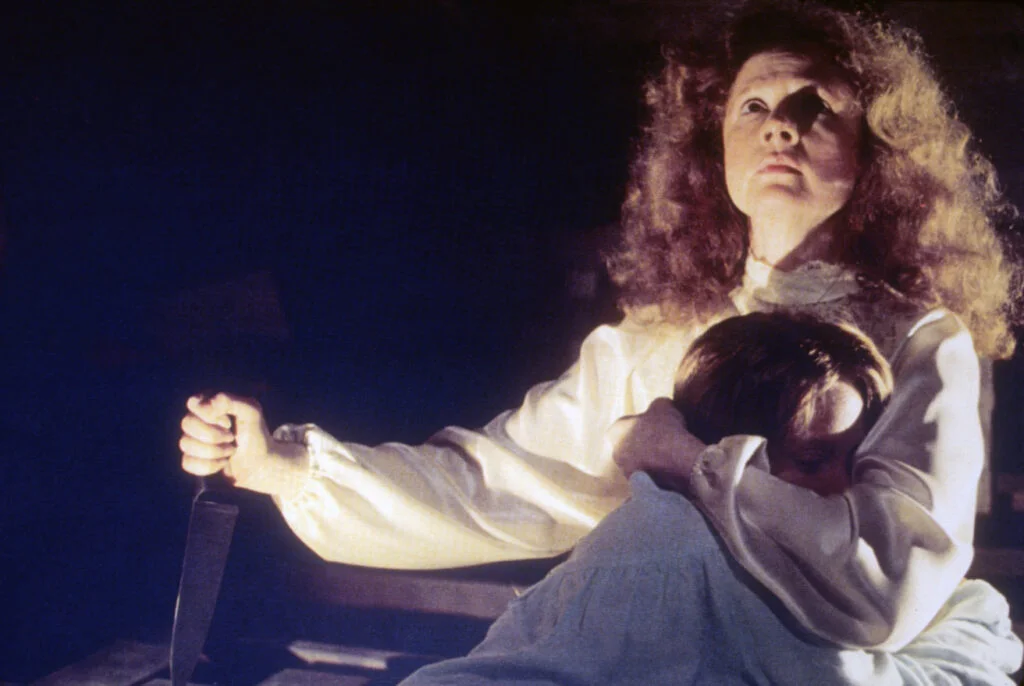
The trailer for Brian De Palma’s “Carrie” didn’t just hint at the prom night disaster – it practically gave you a guided tour of every major supernatural moment. You saw Carrie’s telekinetic powers in full display, the bloody prom scene, and even caught glimpses of the shocking finale that had audiences jumping out of their seats. The marketing folks at United Artists seemed to think that showing Sissy Spacek covered in pig’s blood would be the perfect way to get folks into theaters.
What made this trailer particularly wild was how it revealed not just the climax, but also key emotional beats like Carrie’s relationship with her religious zealot mother. They showed Margaret White’s fanatical behavior and even hinted at her ultimate fate. Looking back, it’s amazing that audiences still found the film terrifying despite knowing exactly what was coming – a testament to De Palma’s masterful direction and the power of Stephen King’s story.
2. The Poseidon Adventure (1972)
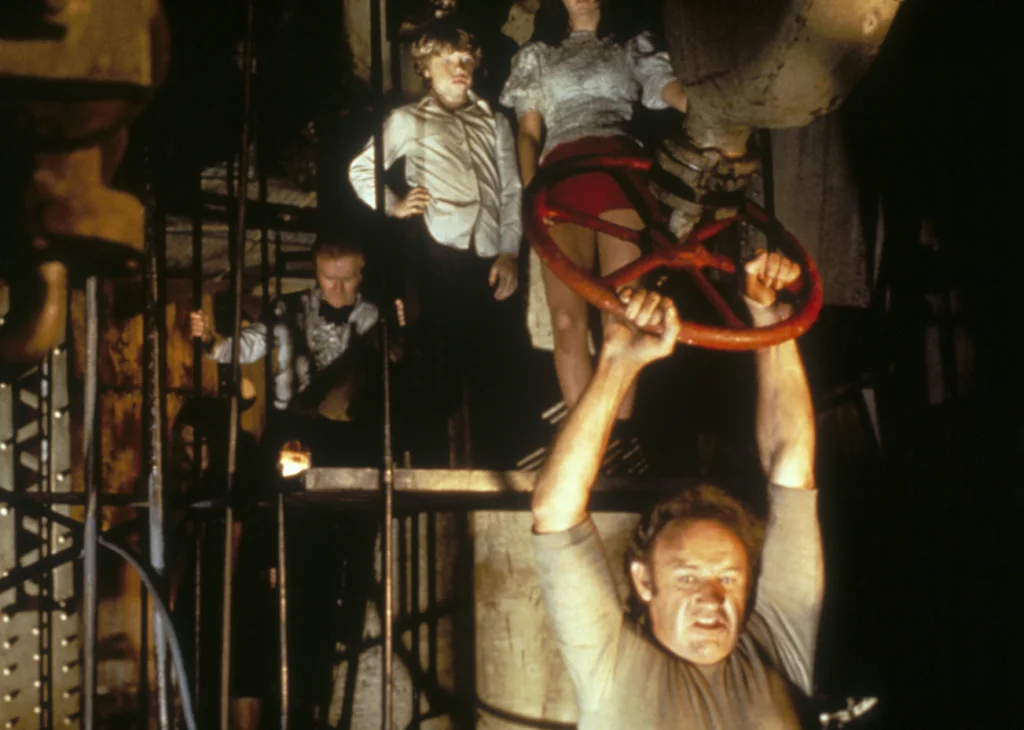
The disaster movie that launched a thousand imitations didn’t hold back in its preview, showing you the massive ocean liner flipping completely upside down in the opening moments. The trailer cheerfully revealed which characters would make it through various death-defying obstacles and which ones would meet their maker along the way. They even showed you the final escape route through the ship’s propeller shaft, essentially giving away the entire survival roadmap.
What’s particularly amusing is how the trailer presented each death as a selling point rather than a spoiler to be protected. Gene Hackman’s fate, Shelley Winters’ heroic sacrifice, and Red Buttons’ various close calls were all laid bare for potential ticket buyers. The marketing team at 20th Century Fox seemed to operate under the theory that people would pay to see how these disasters unfolded rather than if they would happen.
3. Marathon Man (1976)
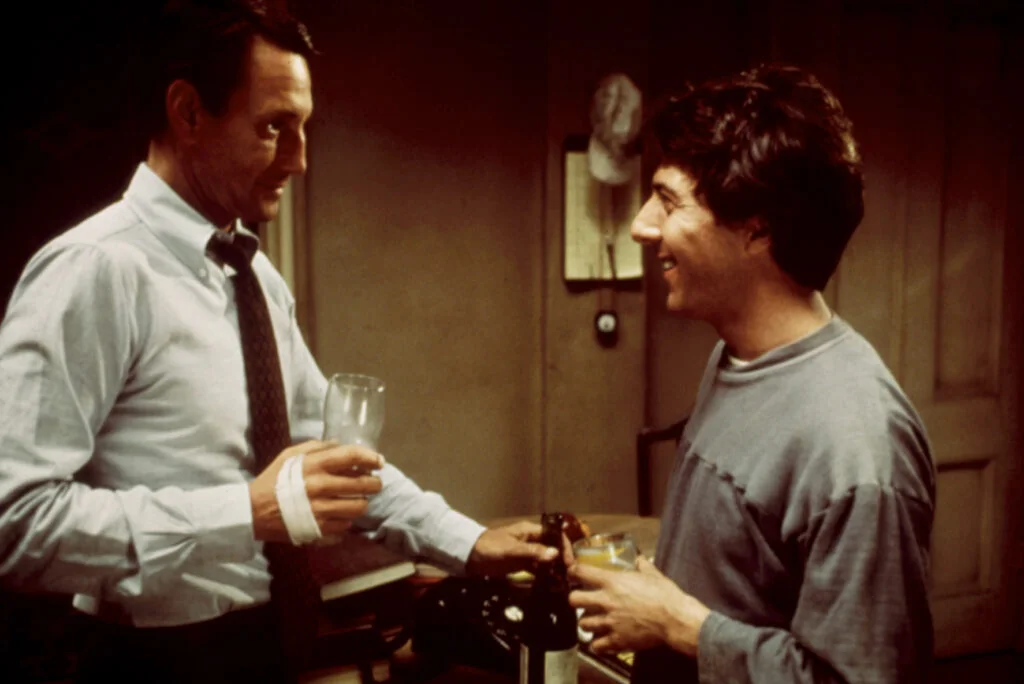
The notorious dental torture scene that made audiences squirm wasn’t kept as a shocking surprise – the trailer for “Marathon Man” made sure everyone knew exactly what Laurence Olivier’s sinister dentist character had in store for Dustin Hoffman. They showed the drill, the chair, and enough of Hoffman’s anguished expressions to make clear this wasn’t going to be a routine cleaning. The preview essentially turned one of cinema’s most uncomfortable moments into a marketing hook.
Beyond the dental horrors, the trailer revealed major plot points about Nazi war criminals, stolen diamonds, and family betrayals that modern audiences would consider massive spoilers. The connection between Hoffman’s graduate student character and his secret agent brother was spelled out completely. Paramount’s marketing department apparently believed that knowing Olivier was the villain and seeing glimpses of the torture would create anticipation rather than ruin any surprises.
4. Jaws (1975)
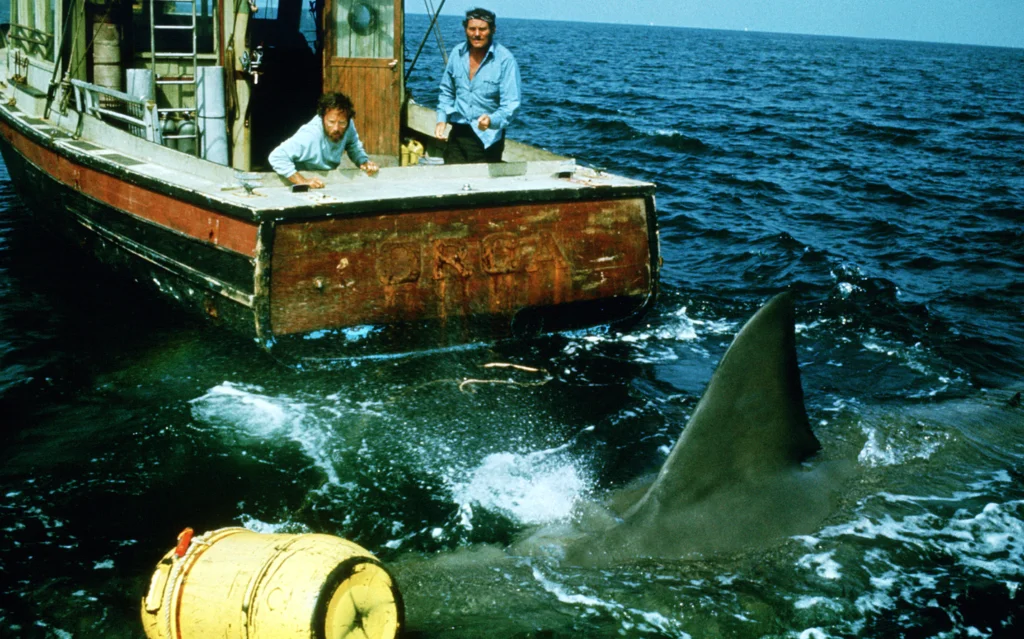
Steven Spielberg’s shark thriller had a trailer that didn’t just tease the great white’s presence – it practically introduced you to Bruce (as the mechanical shark was nicknamed on set) personally. The preview showed the shark attacking swimmers, boats getting destroyed, and even revealed the famous Indianapolis speech that Robert Shaw delivers later in the film. Universal Studios seemed determined to prove they had built a convincing mechanical monster, spoilers be darned.
The trailer also gave away key character deaths and the general structure of the three-act hunt for the shark. You could see Roy Scheider, Richard Dreyfuss, and Robert Shaw heading out on the Orca, and the preview made it pretty clear that not everyone was coming back to shore. What’s remarkable is that even with all these reveals, audiences were still terrified to go swimming, proving that sometimes the journey matters more than the destination.
5. The Exorcist (1973)
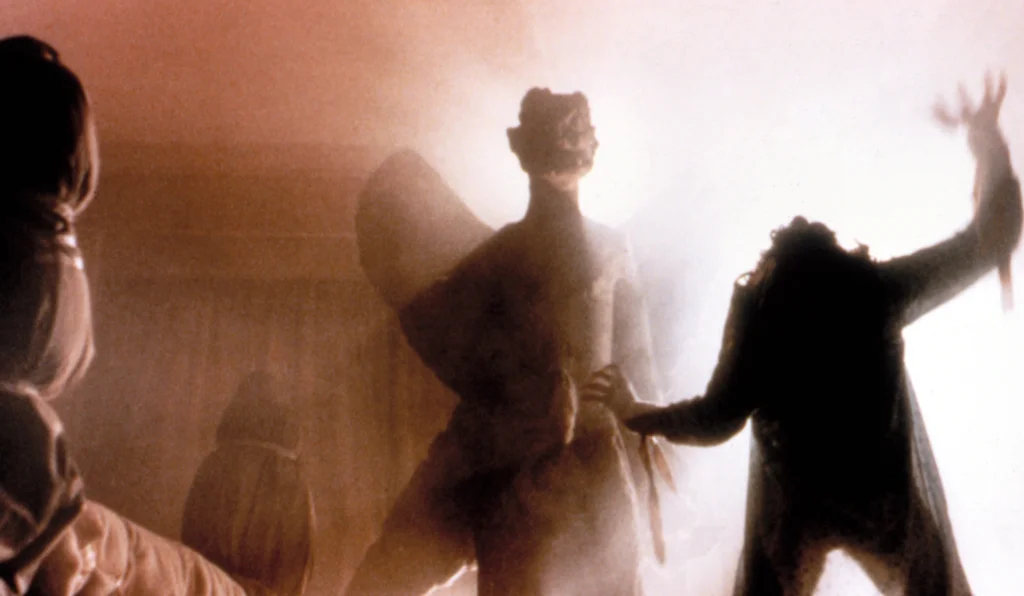
William Friedkin’s supernatural shocker had a trailer that showed Regan MacNeil’s head spinning completely around, her projectile vomiting, and even glimpses of her floating above the bed. Warner Bros. didn’t seem concerned about preserving the shock value of these iconic moments for the actual theater experience. The preview essentially functioned as a greatest hits compilation of the film’s most disturbing sequences.
What made this particularly bold was how the trailer revealed the religious nature of the solution to Regan’s possession problem. Father Karras and Father Merrin were shown performing the actual exorcism ritual, complete with holy water and Latin incantations. The marketing team apparently figured that knowing priests would battle the demon would make audiences more eager to see the supernatural showdown rather than less surprised by the outcome.
6. Dirty Harry (1971)

Clint Eastwood’s iconic “Do you feel lucky?” speech wasn’t saved as a surprise for moviegoers – the trailer for “Dirty Harry” featured the entire monologue as its centerpiece. Warner Bros. used Eastwood’s menacing delivery and that massive .44 Magnum as the main selling points, essentially giving away one of cinema’s most quotable moments. The preview made it crystal clear that Harry Callahan wasn’t your typical by-the-book police officer.
The trailer also revealed major plot points about the Scorpio Killer’s methods, his ransom demands, and even showed glimpses of the final confrontation. You could see Eastwood tracking the killer through the city, the rooftop chase scenes, and enough of the climax to understand how this cat-and-mouse game would ultimately play out. Apparently, the studio believed that seeing Eastwood as a rogue cop willing to bend the rules was more important than preserving narrative surprises.
7. The Towering Inferno (1974)
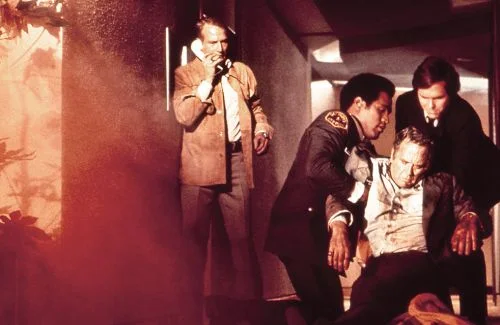
The disaster epic’s trailer didn’t just hint at a building fire – it showed you the entire 138-story Glass Tower going up in flames from bottom to top. 20th Century Fox and Warner Bros. (in a rare joint production) revealed every major disaster sequence, from the initial electrical fire to the helicopter rescue attempts at the very end. The preview essentially functioned as a condensed version of the film’s most spectacular moments.
What’s particularly wild is how the trailer gave away character fates and heroic sacrifices without any attempt to preserve dramatic tension. You could see which characters would make noble choices, who would survive the various escape attempts, and even glimpses of the final water tank explosion that saves the day. The marketing approach seemed to be that audiences would pay to see these disasters in full spectacle rather than be surprised by story developments.
8. Dog Day Afternoon (1975)
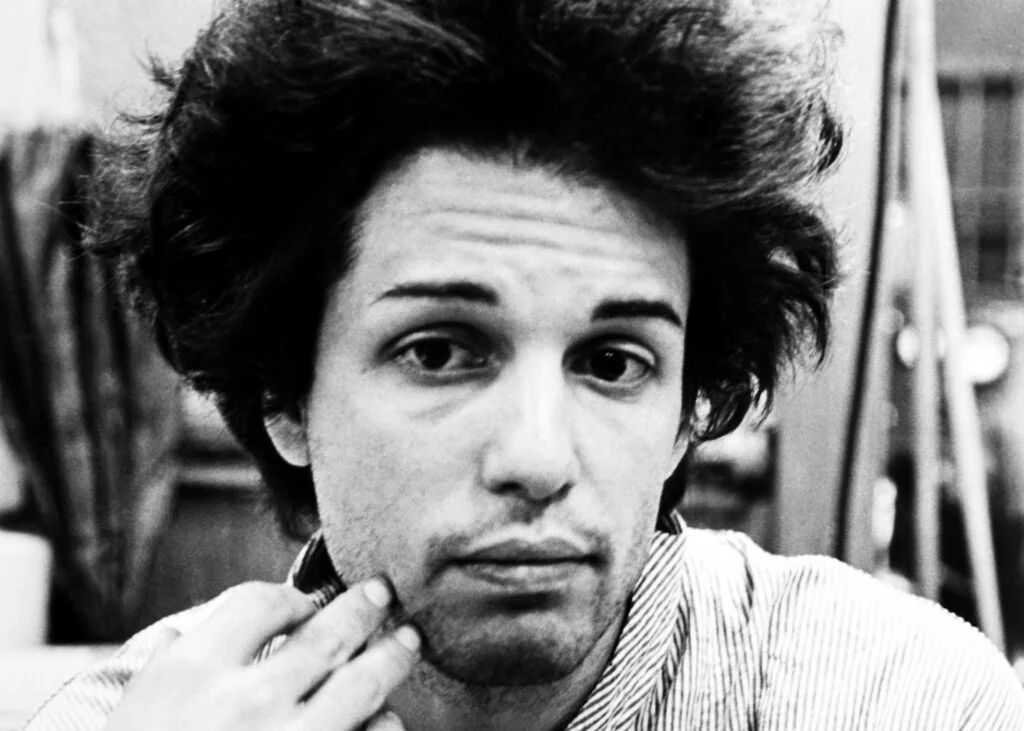
Sidney Lumet’s bank robbery drama had a trailer that revealed not just the botched heist, but also the personal motivations behind Al Pacino’s desperate character. The preview showed that Sonny was trying to finance his partner’s gender reassignment surgery, making clear the unconventional relationship driving the entire plot. Warner Bros. apparently decided that this unique angle was a selling point rather than a secret to be preserved.
The trailer also gave away major developments in the hostage situation, including the media circus outside the bank and Sonny’s interactions with his family members. You could see the FBI’s involvement, the crowd of supporters chanting “Attica,” and even glimpses of how this real-life inspired story would ultimately conclude. The marketing team seemed to believe that knowing the unusual circumstances would make audiences more interested in seeing Pacino’s powerhouse performance.
9. Network (1976)
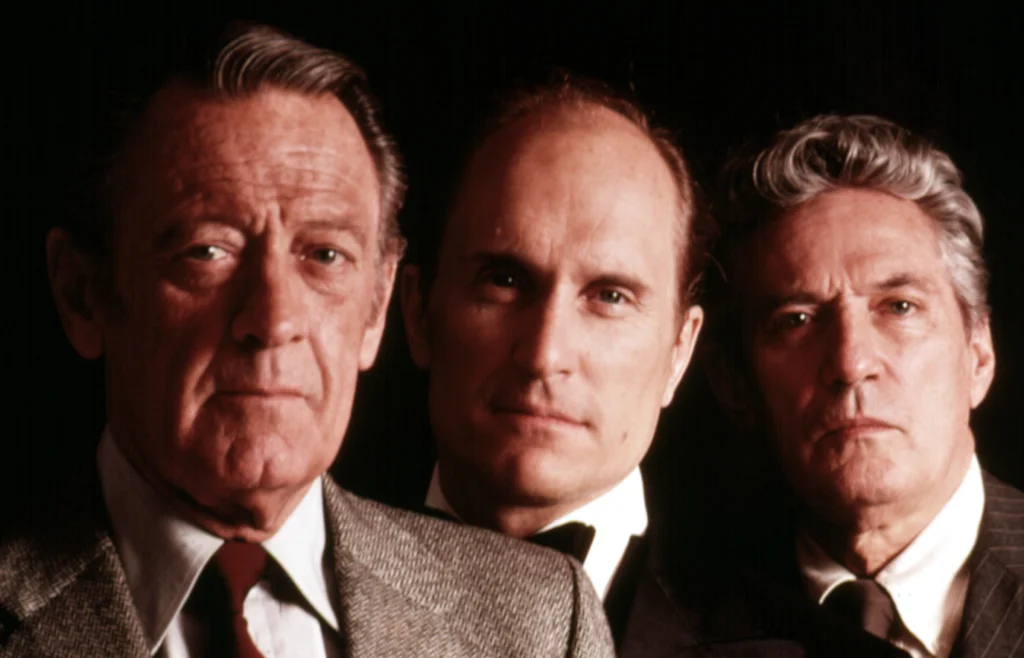
The trailer for Paddy Chayefsky’s media satire didn’t just hint at Howard Beale’s on-air breakdown – it showed you his famous “I’m mad as heck and I’m not going to take this anymore” speech in its entirety. United Artists used Peter Finch’s unhinged anchorman performance as the main attraction, essentially giving away the film’s most memorable moment. The preview made it abundantly clear that this wasn’t going to be a typical workplace drama.
Beyond Beale’s breakdown, the trailer revealed major plot developments about the television network’s exploitation of his mental state for ratings. You could see how Diana Christensen would turn Howard’s instability into a profitable show and even caught glimpses of the violent programming that the network would eventually embrace. The marketing approach seemed to assume that audiences would be drawn to the dark comedy rather than surprised by the satirical revelations.
10. All the President’s Men (1976)
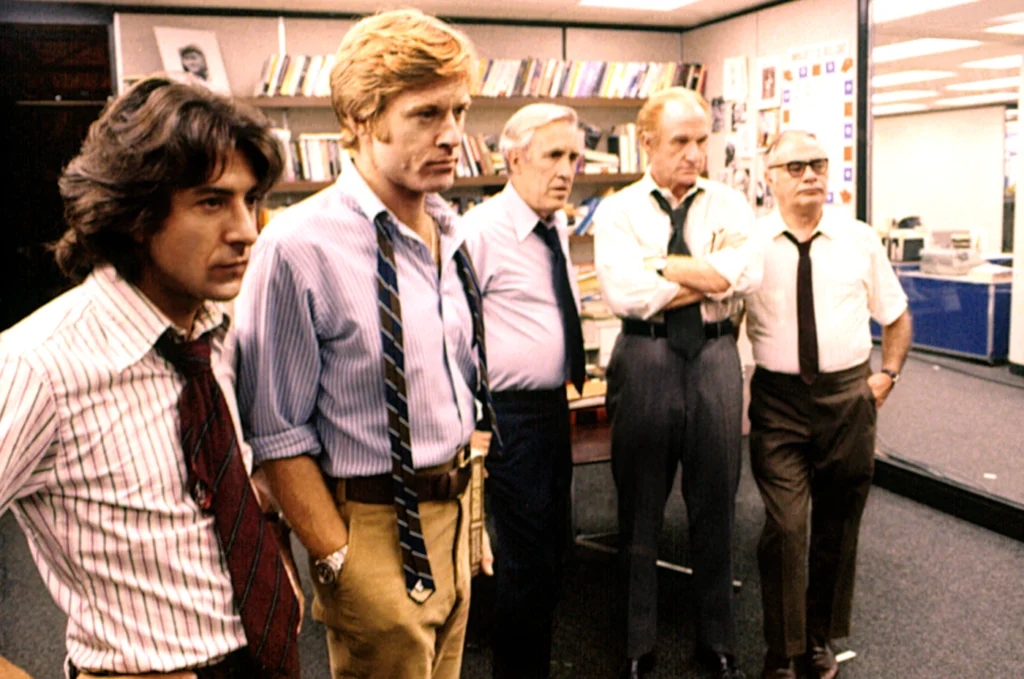
The Watergate thriller’s trailer didn’t preserve the mystery of Deep Throat or the gradual uncovering of the conspiracy – it laid out the entire investigative process from start to finish. Warner Bros. showed Woodward and Bernstein following leads, meeting with sources, and even revealed how their reporting would ultimately bring down a presidency. The preview essentially turned one of journalism’s greatest detective stories into a highlight reel.
What made this particularly amusing was how the trailer treated the Watergate scandal as if it were fiction, even though everyone in 1976 knew exactly how this real-life story had ended. The marketing team showed key scenes with Jason Robards as Ben Bradlee, the mysterious parking garage meetings, and even glimpses of how the investigation would reach into the highest levels of government. Apparently, they figured audiences would pay to see how Hollywood would recreate recent history rather than be surprised by historical revelations.
11. Annie Hall (1977)
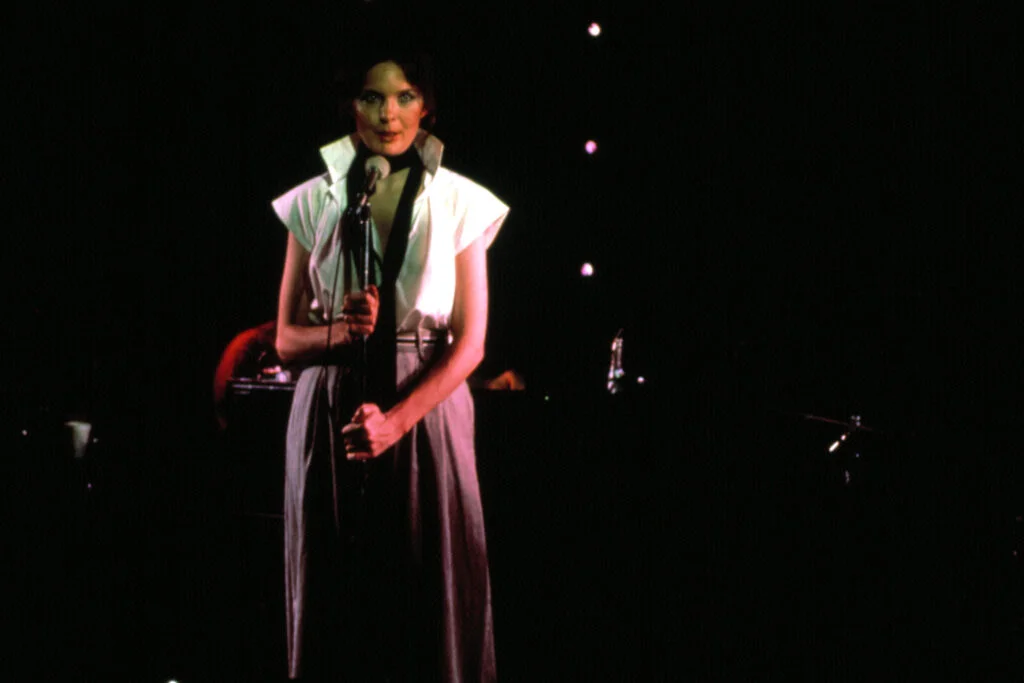
Woody Allen’s romantic comedy had a trailer that revealed not just the relationship between Alvy and Annie, but also showed you their eventual breakup and reconciliation attempts. United Artists didn’t seem worried about preserving the emotional journey, instead using the film’s most poignant moments as selling points. The preview even included Allen’s direct-to-camera commentary, essentially giving away the film’s innovative narrative structure.
The trailer also revealed key character developments and relationship milestones, from their first meeting to their cross-country adventures together. You could see Annie’s growth as a person, Alvy’s neurotic behavior patterns, and even glimpses of how their romance would ultimately play out. The marketing approach seemed to assume that audiences would be more interested in Allen and Diane Keaton’s chemistry than surprised by romantic plot developments.
12. Superman (1978)
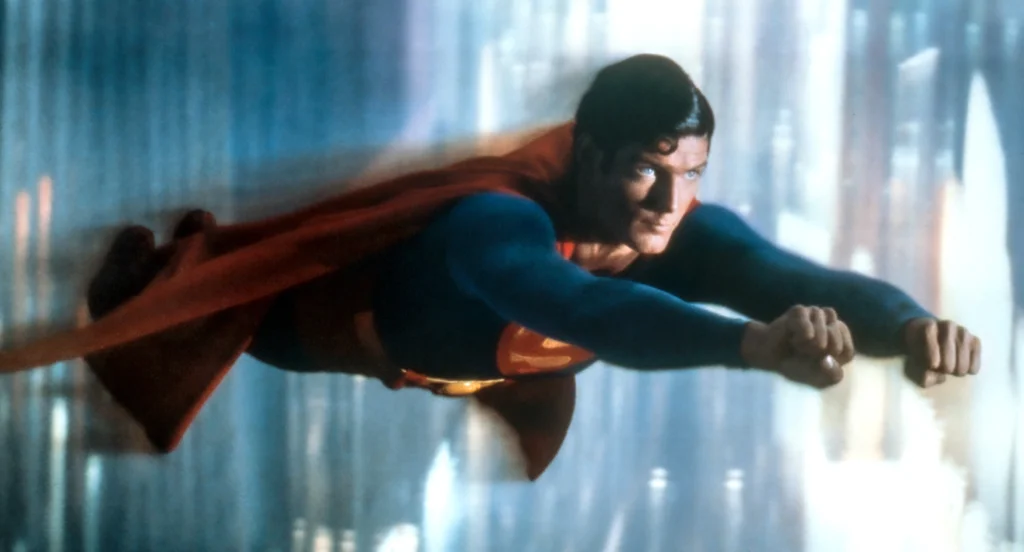
The superhero epic’s trailer didn’t just hint at Clark Kent’s double identity – it showed you the entire origin story from Krypton’s destruction to Superman’s first day saving Metropolis. Warner Bros. and Alexander Salkind Productions revealed major plot points including Lex Luthor’s real estate scheme, the missile crisis, and even Lois Lane’s death and resurrection sequence. The preview essentially functioned as a condensed version of the film’s most spectacular moments.
What’s particularly notable is how the trailer gave away both Superman’s greatest triumph and his moment of greatest desperation without any concern for dramatic impact. The marketing team showed Superman reversing time by spinning the Earth backward, essentially revealing the solution to the film’s climactic crisis. Apparently, the studio believed that seeing Christopher Reeve in the cape and witnessing the special effects spectacle was more important than preserving story surprises for the theater experience.
Those were the days when movie studios trusted their audiences to enjoy the ride even when they knew the destination. Maybe they were onto something – after all, we still quote these films, rewatch them endlessly, and remember them as classics decades later. Sometimes knowing what’s coming just makes you appreciate the craftsmanship even more, and goodness knows we could use a little more of that trusting spirit in our current age of spoiler alerts and embargo dates.
This story The ’70s Didn’t Believe in Spoilers: 12 Movie Trailers That Told You Everything Up Front was first published on Takes Me Back.


